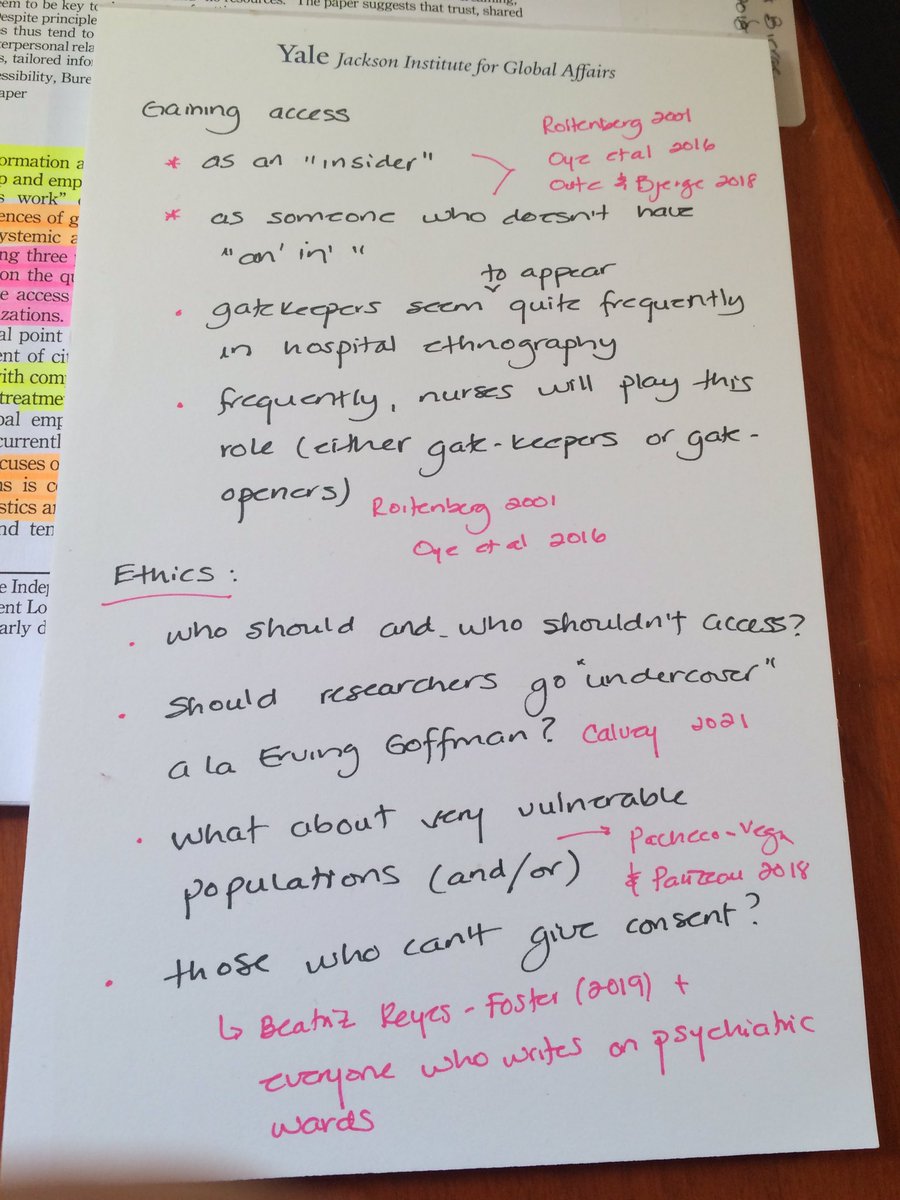
Bold statement before I go back into class:
We need more “reading and reflecting and sharing smart thoughts” time and less seminars where people present papers/give talks.
I want the Reading Group/Book Club/Learning Circle to experience a full revival.
We need more “reading and reflecting and sharing smart thoughts” time and less seminars where people present papers/give talks.
I want the Reading Group/Book Club/Learning Circle to experience a full revival.
I understand the purpose of seminars where we all read the presenter’s paper and help them think things through. I’ve benefited from those.
But imagine a Learning Circle where we all read one chapter of a book or ONE published article and share what we learned deom it?
But imagine a Learning Circle where we all read one chapter of a book or ONE published article and share what we learned deom it?
*from it*
Personally, I learn a lot more from conversing and discussing the material than from being a relatively passive information consumer at a seminar.
One article or book chapter a week, 45 minutes of group discussion. This would be real nourishing food for my brain.
Personally, I learn a lot more from conversing and discussing the material than from being a relatively passive information consumer at a seminar.
One article or book chapter a week, 45 minutes of group discussion. This would be real nourishing food for my brain.
Side note: I stole 30 minutes of the busy schedules of @AdrienneStrong and @BeatriAnthro (each) this week and learned SO MUCH from these brief conversations about #HospitalEthnography. Just so enriching. I want more of that. Focused Learning Sessions.
• • •
Missing some Tweet in this thread? You can try to
force a refresh










